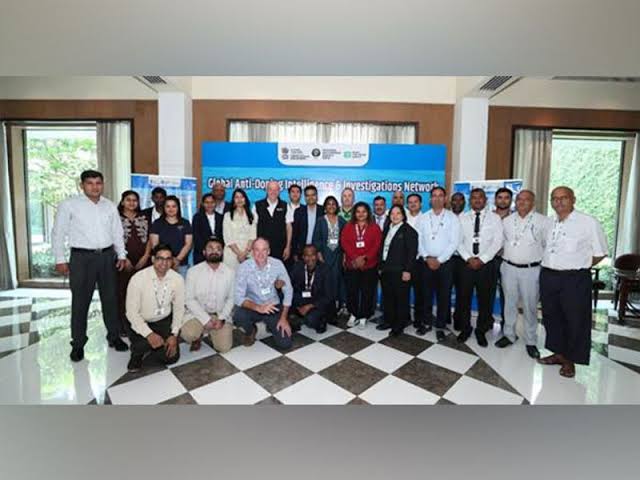In a significant development, the Central Bureau of Investigation (CBI) has arrested ten individuals, including a professor from Jawaharlal Nehru University (JNU), in connection with a bribery case linked to the accreditation process of higher educational institutions. The arrests have raised serious concerns about the integrity of the National Assessment and Accreditation Council (NAAC), an institution responsible for evaluating and grading universities and colleges across India.
 Among those arrested are the chairman and six members of an NAAC inspection committee, who allegedly accepted bribes in exchange for awarding an A++ accreditation to a university. Also implicated in the case are the vice-chancellor and top executives of the Koneru Lakshmaiah Education Foundation (KLEF) in Andhra Pradesh’s Guntur district. According to officials, the arrests were made after a series of raids conducted by the CBI across multiple locations in the country.
Among those arrested are the chairman and six members of an NAAC inspection committee, who allegedly accepted bribes in exchange for awarding an A++ accreditation to a university. Also implicated in the case are the vice-chancellor and top executives of the Koneru Lakshmaiah Education Foundation (KLEF) in Andhra Pradesh’s Guntur district. According to officials, the arrests were made after a series of raids conducted by the CBI across multiple locations in the country.
The chairman of the NAAC inspection committee, Samarendra Nath Saha, who is also the vice-chancellor of Ramchandra Chandravansi University, was taken into custody along with other committee members. The list of those arrested includes Rajeev Sijariya, a professor at JNU; D. Gopal, dean of Bharath Institute of Law; Rajesh Singh Pawar, dean of Jagran Lakecity University; Manas Kumar Mishra, director of G L Bajaj Institute of Technology & Management; Gayathri Devaraja, professor at Davangere University; and Bulu Maharana, professor at Sambalpur University.
The alleged involvement of such senior academics in a bribery case has come as a shock to the education sector, which relies on a fair and transparent accreditation process to ensure quality education. The CBI’s investigation revealed that bribes were paid in the form of cash, gold, mobile phones, and laptops. During the searches, officials recovered Rs 37 lakh in cash, six Lenovo laptops, an iPhone 16 Pro, and several other incriminating materials.
The case also names several other individuals in the FIR, including Koneru Satyanarayana, the president of KLEF, along with NAAC’s former deputy adviser L. Manjunatha Rao, Bangalore University’s professor and director of IQAC-NAAC M. Hanumanthappa, and NAAC adviser M. S. Shyamsundar. While they have not been arrested yet, their alleged involvement remains under investigation.
The CBI conducted raids at 20 locations across India, including Chennai, Bangalore, Vijayawada, Palamu, Sambalpur, Bhopal, Bilaspur, Gautam Budh Nagar, and New Delhi. The magnitude of the operation highlights the seriousness of the issue and the widespread nature of corruption in accreditation processes.
This case has once again brought to light the vulnerability of the higher education accreditation system to manipulation. NAAC accreditation plays a crucial role in determining an institution’s reputation, funding, and student intake, making it a highly sought-after certification. The allegations, if proven, would indicate a deep-rooted problem in the system, where academic credibility is being compromised for monetary gains.
The arrests have sparked discussions about the need for reforms in the accreditation process. Many education experts and policymakers are calling for greater transparency, stricter monitoring, and independent audits to prevent such malpractices in the future. While the CBI’s swift action has been widely acknowledged, there is a growing demand for a thorough overhaul of the accreditation system to restore faith in the evaluation process of Indian higher education institutions.
As the investigation unfolds, the academic community, students, and parents are eagerly awaiting further developments. The outcome of this case could have far-reaching implications, not only for those directly involved but also for the credibility of India’s higher education system as a whole.




